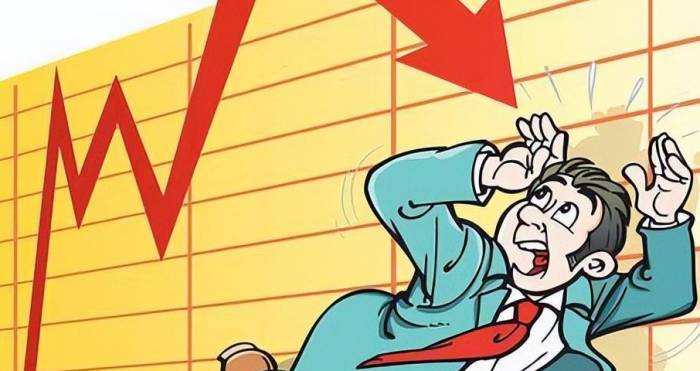In 2024, the A-share and Hong Kong stock markets have experienced a strong uptrend. The Shanghai Composite Index once broke through the 3500-point mark, and the Hang Seng Index also set a new high in nearly two years. This surge came unexpectedly, catching many investors off guard. Everyone is asking: Is this the arrival of a bull market?
Policy benefits are frequent, and the improvement in the capital side is obvious.
To be honest, this surge did come a bit suddenly. Last year, the market was still in turmoil, but this year it suddenly started to flourish. Upon closer examination, there is indeed some substance behind it.
Firstly, on the policy front. Since the beginning of the year, the country has introduced a series of favorable policies. It goes without saying that lowering reserve requirements and interest rates, fiscal policy has also begun to exert its strength. For example, the State Council's executive meeting proposed to increase fiscal expenditure and support major project construction.
Let's look at the real estate market. In the past few years, the real estate market was sluggish, and now policies have also begun to relax. News of first-tier cities canceling purchase restrictions and sales limits is everywhere, although later refuted, it also shows the change in the policy front.
The capital side also deserves credit. Northbound funds continue to flow into A-shares, and southbound funds have also begun to return to Hong Kong stocks. Off-market funds can no longer wait and have entered the market one after another.
Market sentiment is high, and the call for a bull market is widespread.
Once the market conditions improve, everyone's emotions rise. The circle of friends is full of people showing off their gains, and some even start boasting that they are "stock gods."
However, some people are pouring cold water. Some analysts say that the valuation of some sectors in A-shares and Hong Kong stocks is no longer low, especially some popular concept stocks, which have shown signs of "bubbleization." After all, there are risks in the stock market, and entering the market should be cautious.

Some people are also worried that the slowdown in global economic growth and the intensification of geopolitical risks will affect the market. Indeed, the current international situation is quite complicated. Not long ago, the Nikkei 225 index futures triggered the circuit breaker mechanism due to a sharp decline, which frightened Japanese investors.Opportunities and risks coexist, rational investment is crucial.
To be honest, seeing the market so hot, I'm a bit tempted too. But then I think, I need to stay calm. After all, there are risks in the stock market, and one must be cautious when entering it.
I believe that there are indeed many opportunities in the current market. For instance, industries like new energy, artificial intelligence, and semiconductors have promising future prospects. However, one must also be aware of the risks, especially with stocks that are already highly valued and could experience a correction at any time.
For ordinary investors, I think the most important thing is to invest rationally. Don't chase highs, and don't blindly follow the crowd. Investing in some high-quality index funds through a regular investment plan might be a good option. Of course, this is just my personal opinion, and the specifics should be based on each individual's actual situation.
Global market interconnection, Federal Reserve policies have far-reaching effects.
When it comes to the stock market, we also need to look at the global market situation. After all, the global economy is now interconnected, and we all rise and fall together.
Recently, the direction of the Federal Reserve's monetary policy has become a focus of attention. Whether the Federal Reserve raises or lowers interest rates can have a significant impact on the global market. Some analysts say that if the Federal Reserve starts to lower interest rates, it might stimulate a rise in the global stock market. However, others are concerned that if the U.S. economy goes into recession, it could also have a negative impact on the global economy.
I think these analyses make sense. But for us ordinary investors, instead of guessing the Federal Reserve's policies, it's better to pay more attention to domestic economic conditions and policy changes. After all, we are so far from the U.S., and domestic factors have a greater impact on A-shares and Hong Kong stocks.
How will the future trend be? Let's take it one step at a time and cherish the journey.
To be honest, predicting the future trend of the stock market is really too difficult. Even the so-called "experts" often get it wrong, let alone us ordinary investors.However, I still feel that the current market conditions are quite good. Policy support and improved liquidity are important factors that support the market. But we can't be too optimistic, after all, there are risks in the stock market, and one must be cautious when entering the market.
For the future, I think the most important thing is to remain rational. Don't be confused by short-term fluctuations; look to the long term. If you really believe in a certain industry or company, you might consider holding for the long term. But also pay attention to diversifying your investments; don't put all your eggs in one basket.
Whether this market trend can continue, and if it's truly the arrival of a bull market, we will have to continue to observe. But no matter what, seeing the market so lively is always a good thing. I hope everyone can make money in this market trend, but also remember, investing carries risks, and one must be cautious when entering the market!